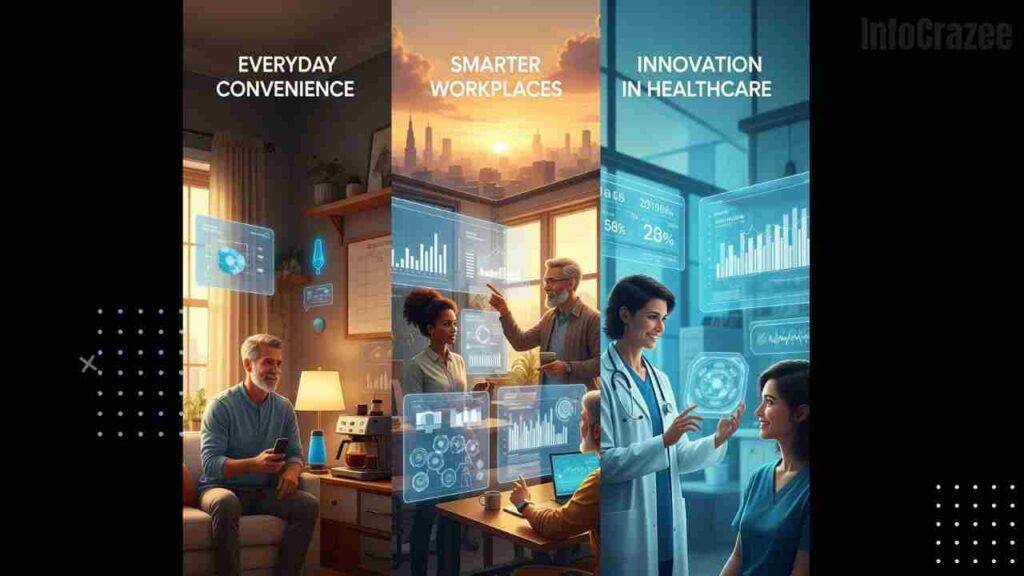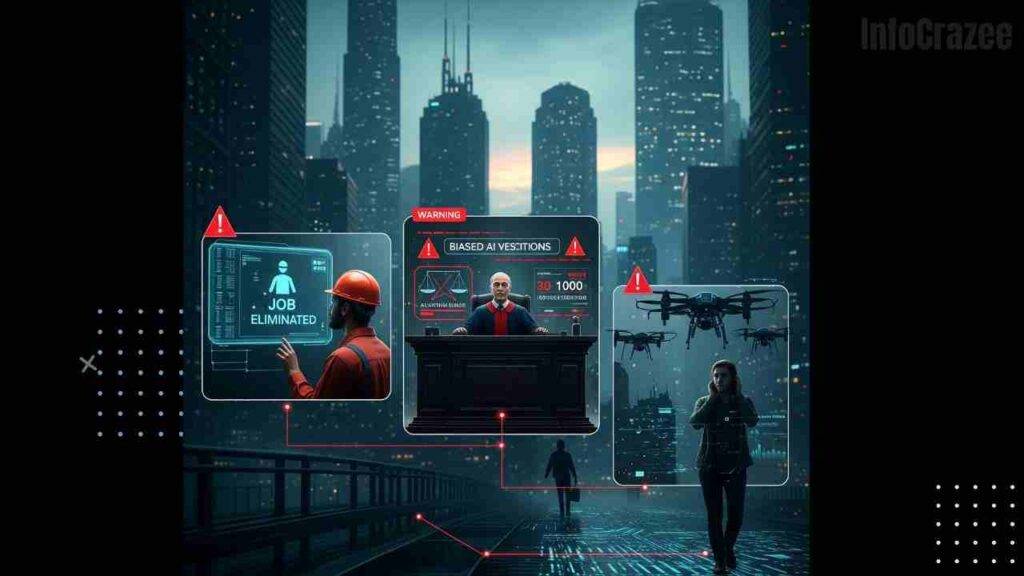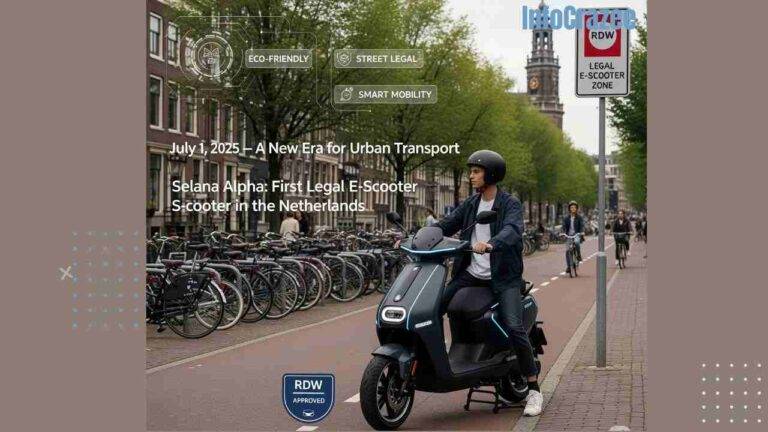AI-Powered Future: Bright Hope or Growing Danger Ahead?
Artificial Intelligence (AI) isn’t science fiction anymore—it’s already shaping our everyday lives. From voice assistants to self-driving cars and personalized shopping experiences, AI is everywhere. But as it grows more powerful, people are asking: Is AI making the world better, or are we walking into a future we might regret?
The Bright Side: Why AI Gives Us Hope
1. Everyday Convenience
AI is already making life easier.
- Smart assistants like Alexa, Siri, and Google Assistant help with reminders, weather updates, and even jokes.
- Apps use AI to recommend music, movies, and products tailored just for you.
- AI in navigation apps like Google Maps helps avoid traffic by predicting the fastest routes.
Real-life example: Zara, a busy working mom, uses a smart speaker to plan her day, manage grocery lists, and even help her kids with homework—all hands-free.
2. Smarter Workplaces
AI is transforming jobs and businesses, not by replacing everyone, but by helping people work smarter.
- AI tools automate repetitive tasks like data entry, scheduling, and customer support.
- Teams use AI-powered chatbots and virtual assistants to improve communication and productivity.
- Doctors get help from AI in diagnosing diseases faster and more accurately.
Tip: If you’re in the workforce, learn how to use AI tools like ChatGPT, Grammarly, or Notion AI. They can seriously boost your productivity.
3. Innovation in Healthcare
AI isn’t just about gadgets—it’s saving lives.
- AI is used to detect diseases early, sometimes before symptoms appear.
- Robots assist surgeons in complex operations.
- Mental health apps now offer 24/7 support using AI-driven conversations.
Fun fact: Google’s DeepMind AI once diagnosed over 50 eye diseases more accurately than doctors!

The Dark Side: Are There Real Dangers?
1. Job Displacement
Let’s face it—AI is already replacing some jobs.
- Automated checkouts are replacing cashiers.
- AI writing tools are being used in journalism, marketing, and customer support.
- Truck drivers worry about self-driving technology.
What you can do: Focus on learning skills that AI can’t easily replace—like creativity, emotional intelligence, problem-solving, and leadership.
2. Bias and Unfair Decisions
AI isn’t always neutral. In fact, it can sometimes make unfair or biased decisions.
- Hiring algorithms may unintentionally favor certain groups.
- Facial recognition has been found to be less accurate for people of color.
- AI tools can reinforce stereotypes found in their training data.
Story time: A major tech company had to shut down its AI recruiting tool when it was discovered to be biased against women applicants. The AI had learned from past hiring data, which was already biased.
3. Privacy and Surveillance
With AI comes a big question: Are we trading convenience for privacy?
- AI tracks your behavior online to personalize ads and recommendations.
- Smart home devices are always “listening” to hear their wake word.
- Governments and companies use AI for surveillance, raising concerns about misuse.
Tip: Be mindful of what you agree to online. Always check app permissions and privacy settings.

Finding the Balance: What Should We Do?
AI isn’t good or bad—it’s a tool. It all depends on how we use it and whether we put the right rules in place.
Here’s what needs to happen:
- Strong regulations to prevent misuse of AI in hiring, surveillance, and weaponry.
- Transparent algorithms so people understand how decisions are made.
- Ethical development of AI that values fairness, safety, and human rights.
- More awareness so everyone—especially the younger generation—knows how AI works and how to use it responsibly.
What You Can Do Today
You don’t need to be a tech expert to stay informed and stay safe. Here are a few simple steps:
- Stay curious: Read, watch videos, and follow trusted tech blogs (like Infocrazee!) to keep up with AI news.
- Try AI tools: Use them in your daily life and see what works for you.
- Talk about it: Chat with friends and family about how AI affects them. Awareness is the first step to responsible use.
Final Thoughts
The AI-powered future is both exciting and challenging. It holds incredible promise—from curing diseases to improving daily life—but it also demands smart thinking, ethical rules, and constant learning.
So, is the future bright or dangerous? Honestly, it could be both. But one thing’s for sure: the more we understand AI, the better choices we can make—for ourselves and for the world.
Your Turn: What Do You Think?
Are you excited about what AI can do? Or are you more worried about the risks?
Share your thoughts in the comments on Infocrazee, and let’s keep the conversation going.
FAQs: AI and the Future
Q1: Will AI take over all human jobs?
A: No, not all jobs. AI may replace repetitive or rule-based tasks, but jobs requiring creativity, emotional understanding, and complex problem-solving are hard to automate. The future will likely include more human-AI collaboration, not complete replacement.
Q2: Can AI really be dangerous?
A: Yes, if misused. From biased decisions to privacy concerns and even autonomous weapons, AI can cause harm if we don’t set clear rules and ethical standards. That’s why transparency and regulation are so important.
Q3: How can I prepare for an AI-powered future?
A: Start by learning how AI works and exploring tools that can help in your career or daily life. Focus on building human skills—like creativity, communication, and adaptability—that AI can’t easily replace.






